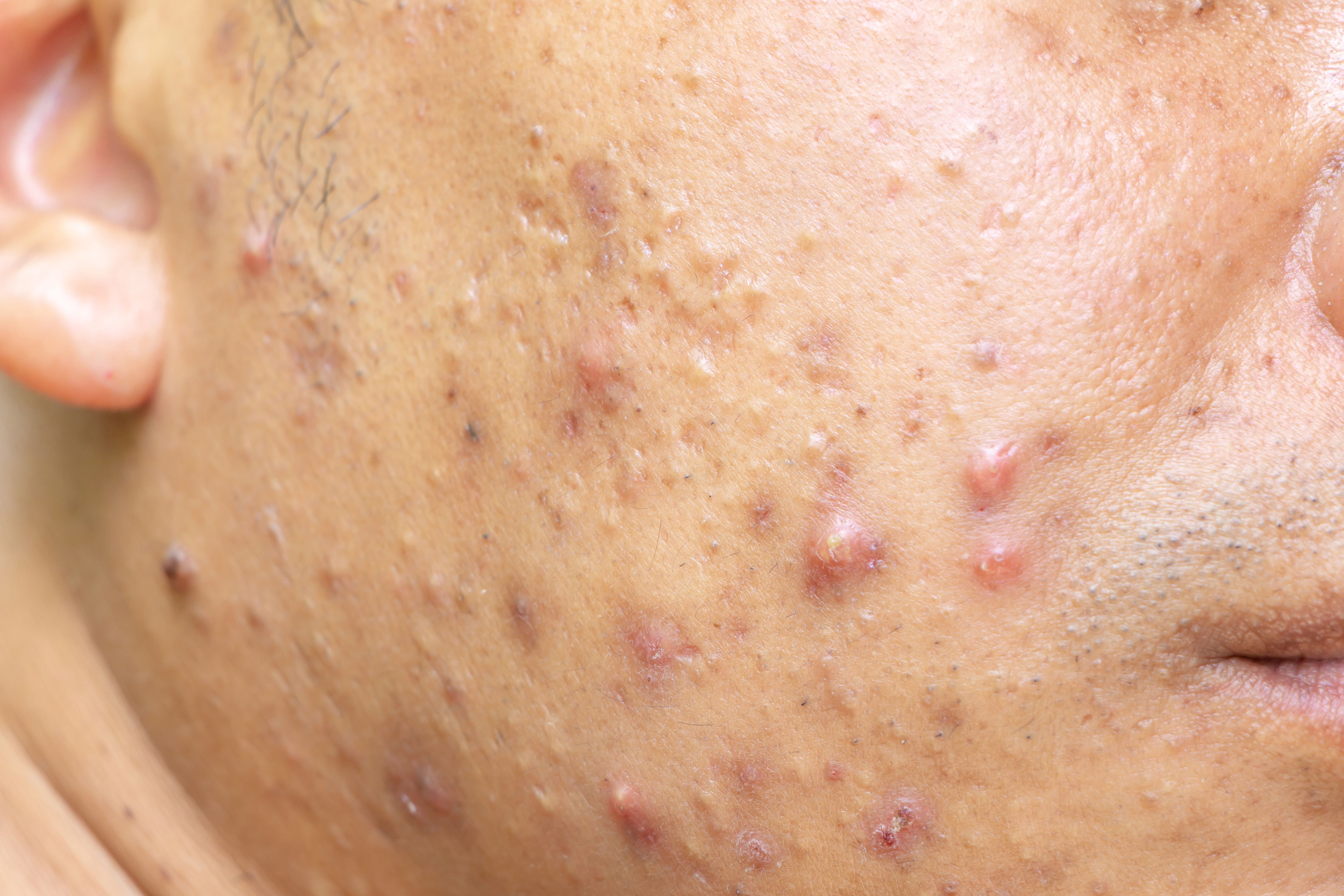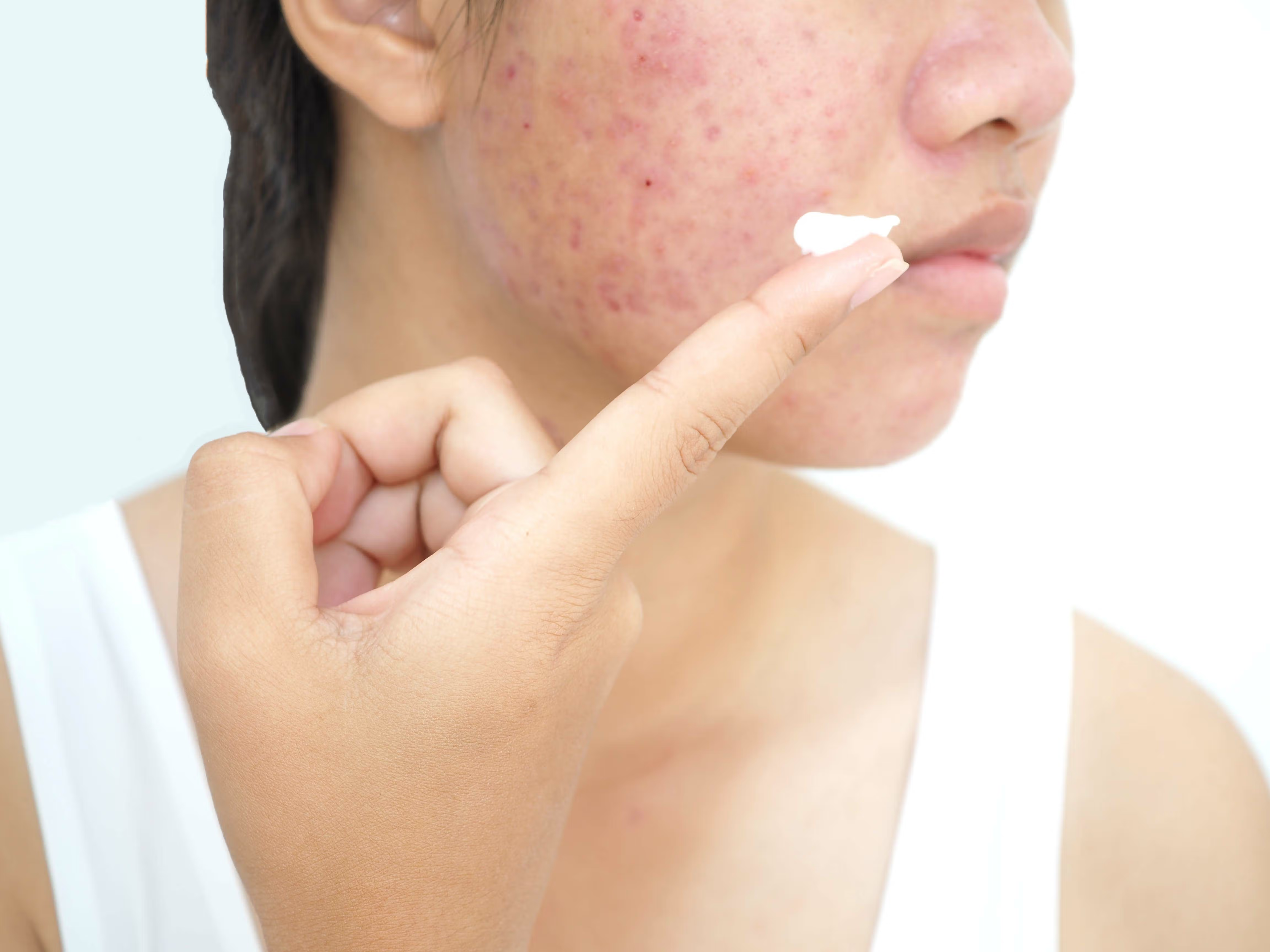- Case-Based Roundtable
- General Dermatology
- Eczema
- Chronic Hand Eczema
- Alopecia
- Aesthetics
- Vitiligo
- COVID-19
- Actinic Keratosis
- Precision Medicine and Biologics
- Rare Disease
- Wound Care
- Rosacea
- Psoriasis
- Psoriatic Arthritis
- Atopic Dermatitis
- Melasma
- NP and PA
- Skin Cancer
- Hidradenitis Suppurativa
- Drug Watch
- Pigmentary Disorders
- Acne
- Pediatric Dermatology
- Practice Management
- Prurigo Nodularis
- Buy-and-Bill
Opinion
Article
What to Recommend for OTC Acne-Prone Skin Care
Author(s):
There’s nothing worse than having OTC products fight back against the progress we make with our prescription therapies.
JU.STOCKER/AdobeStock

In the current environment of endless products, viral TikTok videos, and ever-changing trends, it can sometimes be difficult to formulate a comprehensive acne-prone skincare regimen to complement the medications we prescribe for our patients. Each patient has unique needs based on their individual skin type.
Acne can be caused by a variety of factors including hormones, stress, bacteria, an diet, among others. For hormonal acne, I will usually initiate treatment with either clascoterone cream (Winlevi; Sun Pharma) as topical therapy or oral spironolactone for systemic therapy depending on the severity of the acne. Whereas, for comedonal acne, I typically start with topical retinoids, glycolic acids, and/or salicylic acid-based products. However, no matter the type of acne or regimen, the 3 things I always recommend using are cleansers, sunscreens, and moisturizers.
When endorsing products to acne patients, I always recommend ones that are oil-free and non-comedogenic to avoid clogging the pores. When skincare products have comedogenic or pore-clogging abilities, the pores on the skin can become blocked with a buildup of dried dead skin and oils leading to acne breakouts. There’s nothing worse than having our products fight back against the progress we make with our prescription therapies.
To help navigate the expansive options available on the market, I’ve put together a list of my top recommendations for over-the-counter products with quality ingredients based on some common skin types.
For Dry Skin
Cleanser
La Roche Posay Hydrating Cleanser: Cleansing is the necessary first step to any skincare routine and when it comes to dry skin, this cleanser is one of my favorites. I typically recommend using this cleanser or other gentle skin cleansers at night prior to topical retinoid use to avoid excess irritation.
Sunscreen
EltaMD UV Facial Broad-Spectrum Sunscreen: Whether you need a boost of moisture or sun protection, this sunscreen has you covered. With Zinc oxide, hyaluronic acid, and Vitamin E, what more could you ask for? This fragrance-free, non-comedogenic formulation is perfect for dry and acne-prone skin.
Moisturizer
Neutrogena Hydroboost Water Gel with Hyaluronic Acid: For every acne routine, finding the right moisturizer is key. For dry skin types, I typically recommend products that contain hyaluronic acid such as the Neutrogena Hydroboost Water Gel to achieve a hydrating glow.
For Oily Skin
Cleanser
CeraVe Foaming Cleanser: This foaming gel face wash is ideal not only for treating oily skin, but also doubles as an incredibly effective makeup remover. With a gentle, fragrance-free formulation of ceramides, hyaluronic acid, and niacinamide, this cleanser helps to maintain the moisture balance in the skin without leaving excess residue behind.
Sunscreen
EltaMD UV Clear Sunscreen: Of all the acne-safe sunscreens, this is my hands-down favorite! This lightweight formula is oil-free and non-comedogenic, while providing broad spectrum coverage against UVA and UVB rays with Zinc oxide. Unlike other mineral-based sunscreens, this one won’t leave you with a white cast.
Moisturizer
La Roche-Posay Double Repair Matte Moisturizer: At last, the perfect moisturizer for oily skin types. Featuring a high concentration of prebiotic thermal water, ceramides, and niacinamide, this moisturizer is very effective in hydrating the skin, while also having a lightweight, oil-free formulation to avoid excess shine.
For Sensitive Skin
Cleanser
Cetaphil Gentle Skin Cleanser: If you have sensitive skin, the Cetaphil Gentle Skin Cleanser works well to cleanse the skin while still providing continuous hydration and soothing benefits. Formulated with Micellar technology, niacinamide (vitamin B3), panthenol (vitamin B5), and hydrating glycerin, this fragrance-free cleanser is an exceptional choice for cleansing sensitive skin.
Sunscreen
CeraVe AM Facial Moisturizing Lotion: Another great product by CeraVe is their AM Facial Moisturizing Lotion for daily SPF and moisturizer use. With both chemical and mineral protection, hyaluronic acid, ceramides, niacinamide and so much more, this sunscreen works well to hydrate and soothe sensitive skin while also protecting from harmful damage.
Moisturizer
Vanicream Daily Facial Moisturizer: I’m obsessed with the Vanicream product line in general, but this moisturizer is my personal favorite. Packed with hyaluronic acid and ceramides, while also being fragrance and paraben-free, the Vanicream Daily Facial Moisturizer is perfect for sensitive skin types.
For Combination Skin
Cleanser
Cetaphil Daily Facial Cleanser: When it comes to combination skin types, it can often be tricky to find the right balance between purifying oily skin areas while also hydrating the dry ones. The Cetaphil Daily Facial Cleanser has a gentle gel-to-foam formula that deep cleans without stripping the skin of its natural hydration. The hypoallergenic, fragrance-free design also provides benefits for any sensitive skin areas making it an amazing combination cleanser.
Sunscreen
La Roche-Posay Anthelios Clear Skin Sunscreen: This sunscreen has a unique formulation with silica and perlite for oil reduction, while also featuring thermal spring water and vitamin E for antioxidant benefits. If you’re looking for a gentle, mattifying sunscreen, look no further.
Moisturizer
CeraVe PM Facial Lotion: The final step in a nighttime skincare routine should always be your moisturizer. Designed with hyaluronic acid, ceramides, and niacinamide, adding this oil-free, non-comedogenic night cream to an acne regimen can help moisturize and calm the skin.
Hailey Brickman, PA-C, is a board-certified dermatology physician assistant practicing at The Dermatology Specialists in New York, NY.





